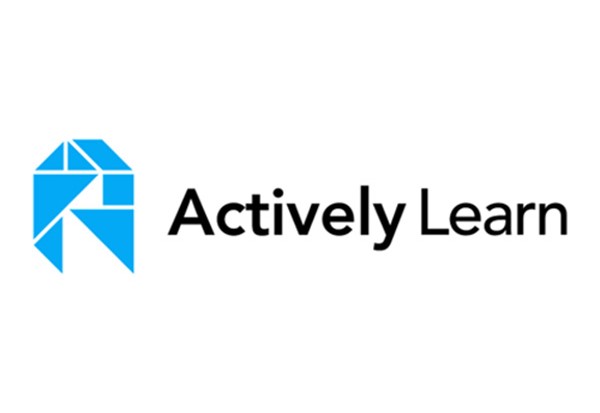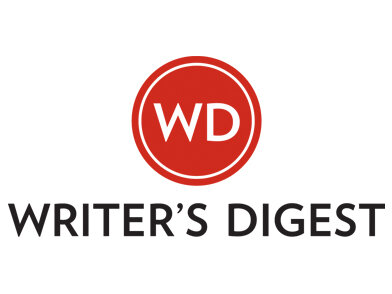Online High School Language Arts Curriculum
Strong reading and writing skills are crucial for success in adulthood. A good high school English language arts (ELA) curriculum is relevant in daily life, creating the foundation for effective communication, critical thinking analysis, and an appreciation for different perspectives.
As students explore centuries of literature and language, they sharpen their academic abilities and gain essential life skills, fostering confidence, articulation, and leadership qualities that will serve them throughout their lives.
What do students learn in high school English classes?
For homeschoolers in many states, parents determine their student’s graduation requirements. For a well-rounded education, your high school English curriculum should include:
- Analysis of different genres
- The history of literature, literary movements, and famous authors
- Identification of themes, story elements, character motives, and author’s purpose
- Exploration of different writing styles, devices, and advanced grammar rules
- Reading classic literature, such as Romeo and Juliet or Pride and Prejudice
- How to craft arguments, present evidence, draw conclusions, and cite sources
- Practice implementing different writing styles and devices in essays and assignments

Reading Comprehension Level H (Revised 2023)
Suggested Grades: 7th
In this course, students will read many different genres and practice their language skills through reflective exercises. Students will gain new reading strategies in our Language Skills courses. The Reading Comprehension courses reinforce those skills.
Key topics include:
- Fiction, including works such as The Lightning Thief and When You Trap a Tiger
- Literary nonfiction, including works such as The Boys in the Boat and The Playbook
- Drama, including original plays such as Mark is Missing and works plays such as The Diary of Anne Frank
- Poetry, such as “The Road Not Taken” and “A Dream Within A Dream”
- Nonfiction, including topics such as the Bermuda Triangle, dragons, and parkour
Foundations in Language Arts 1
Suggested Grades: 7th
In this course, students will continue to learn about various parts of speech, advanced punctuation, and persuasive writing. The skills learned in this course can be applied and practiced directly in Reading Comprehension Level H. We also recommend that students build their vocabulary with our Daily Vocabulary Practice.
Key topics include:
- Pronoun case, demonstrative adjectives and pronouns, correlative conjunctions
- Comparative and superlative adjectives and adverbs
- Persuasive writing with The Wizard of Oz
- Greek and Latin roots vocabulary
Reading Comprehension Level I (Revised 2024)
Suggested Grades: 8th
As in the Reading Comprehension course for 7th grade, in this course, students will read many different genres and practice their language skills with reflective exercises. Students will gain new reading strategies through our Language Skills courses. The Reading Comprehension courses reinforce those skills.
For Reading Comprehension Level I, key topics include:
- Fiction, including works such as Refugee and The Outsiders
- Poetry, including works such as “Annabel Lee” and “I Wandered Lonely as a Cloud”
- Nonfiction, including topics such as black holes, video games, and the electric guitar
Foundations in Language Arts 2 (NEW 2023)
Suggested Grades: 8th
Our Foundations in Language Arts 2 course teaches reading comprehension, writing, critical thinking, and language skills. We also recommend that students strengthen their vocabulary knowledge with the Daily Vocabulary Practice.
Key topics include:
- Exploring the themes of “home” and descriptive writing
- Elements of short stories such as theme, characterization, and setting in narrative writing
- Overcoming adversity by exploring famous authors’ writing struggles
- How to research, including identifying bias and reliable sources
- Analysis of literary devices in a close reading of Shakespeare’s Twelfth Night
- Techniques of effective persuasive writing

English 1
Suggested Grades: 9th
English I introduces students to diverse literary genres, including works like O. Henry’s short stories, Robert Frost’s poetry, Shakespeare’s Romeo and Juliet, and Robert Louis Stevenson’s Treasure Island. Through critical reading, textual analysis, and exercises in grammar, vocabulary, and writing, students acquire skills that will be expanded upon in future English courses.
Topics in this course include:
- Greek mythology
- Poetry and poetic devices
- Analysis of several different short stories
- Reading and analyzing Treasure Island
- Reading and analyzing Romeo and Juliet
- Logical fallacies, appeals, and rhetorical devices
English 2
Suggested Grades: 10th
English II builds on the foundational skills developed in English I, strengthening students’ critical thinking and analytical abilities. The curriculum explores a diverse range of prose, poetry, and nonfiction, featuring notable works like Jane Austen’s Pride and Prejudice, Homer’s The Odyssey, and William Shakespeare’s Othello, along with historically significant speeches and writings. Students will conduct thorough textual analyses and complete written critiques and formal essays.
Topics in this course include:
- Reading and analyzing different short stories
- Reading poetry and analyzing poetic devices
- Reading and analyzing The Odyssey, Pride and Prejudice, and Othello
- Creating and developing a compelling argument
English 3
Suggested Grades: 11th
This course examines the beginnings of American literature, starting with Indigenous oral traditions and progressing through key historical periods such as the Enlightenment, Romanticism, and Naturalism. Students will analyze American writers’ works within their historical contexts, focusing on prose and poetry in detail.
Topics in this course include:
- The Pre-Colonial Period, Colonialism, and Early Nationalism
- Romanticism and Gothic literature
- Transcendentalism and its most famous authors
- Realism and Naturalism and their most famous authors
- Modernism and analysis of The Great Gatsby
- The Harlem Renaissance and its most famous authors
Literary Analysis
Suggested Grades: 11th-12th
This course teaches literary analysis skills for understanding more complex texts, preparing students for college admission exams. Through a wide array of texts, including speeches and memorable passages, students will develop cohesive and mature responses to prompts. In addition, students will participate in literary analyses, essays, and short responses as part of their coursework.
Topics in this course include:
- Reasoning, understanding relationships, and identifying implicit and explicit ideas
- Learning how to cite textual evidence
- Interpreting word choice and analyzing phrases in context
- Identifying core ideas and purpose of literature
- Analyzing arguments and examining evidence, claims, and counterclaims
- Identifying text structure and part-whole relationships
High School Writing
Suggested Grades: 9th-12th
This elective course offers specialized writing instruction for students in grades 9-12, emphasizing proper structure and techniques for different writing tasks, audiences, and purposes. It covers various styles in common high school writing assignments while preparing students with the skills needed for college level writing.
Topics in this course include:
- Types of writing
- Essay structure
- How to present evidence
- How to research and identify quality sources
- Final writing project
MiaPrep’s Accredited High School ELA Curriculum
Whether you’re full-time homeschooling or needing after-school enrichment, MiaPrep offers comprehensive solutions for every learner! Our ELA curriculum for high school students is designed to be engaging, effective, and accessible, ensuring the best learning experience possible. Grounded in the principles of Universal Design for Learning, our courses provide customizable learning experiences without compromising quality.
Each lesson is designed to encourage students to delve deeper into complex subject matter. For students seeking additional assistance in ELA, MOHS offers dedicated office hours with our experienced curriculum developers. These sessions offer personalized guidance outside of regular class time. Whether striving to enhance comprehension or fine-tune an essay, our MOHS staff is committed to delivering customized support to your student.
In addition, our accredited high school English curriculum continues to grow with our monthly content updates. Created by experienced educators, our curriculum goes above and beyond, preparing students for success beyond K-12 education. Through our online language arts courses, students can access engaging videos, interactive activities, games, and more! With our accredited curriculum, you can trust that your child’s education is in great hands.
Additional High School Language Arts Resources
The Learning Network
Created by the New York Times, integrate the real world into your classroom with curated articles for your teen.
If you’re curious how MiaPrep’s homeschool ELA curriculum can work for you, feel free to chat with one of our helpful customer service representatives! They’ll be happy to help you with any questions you may have.


